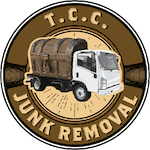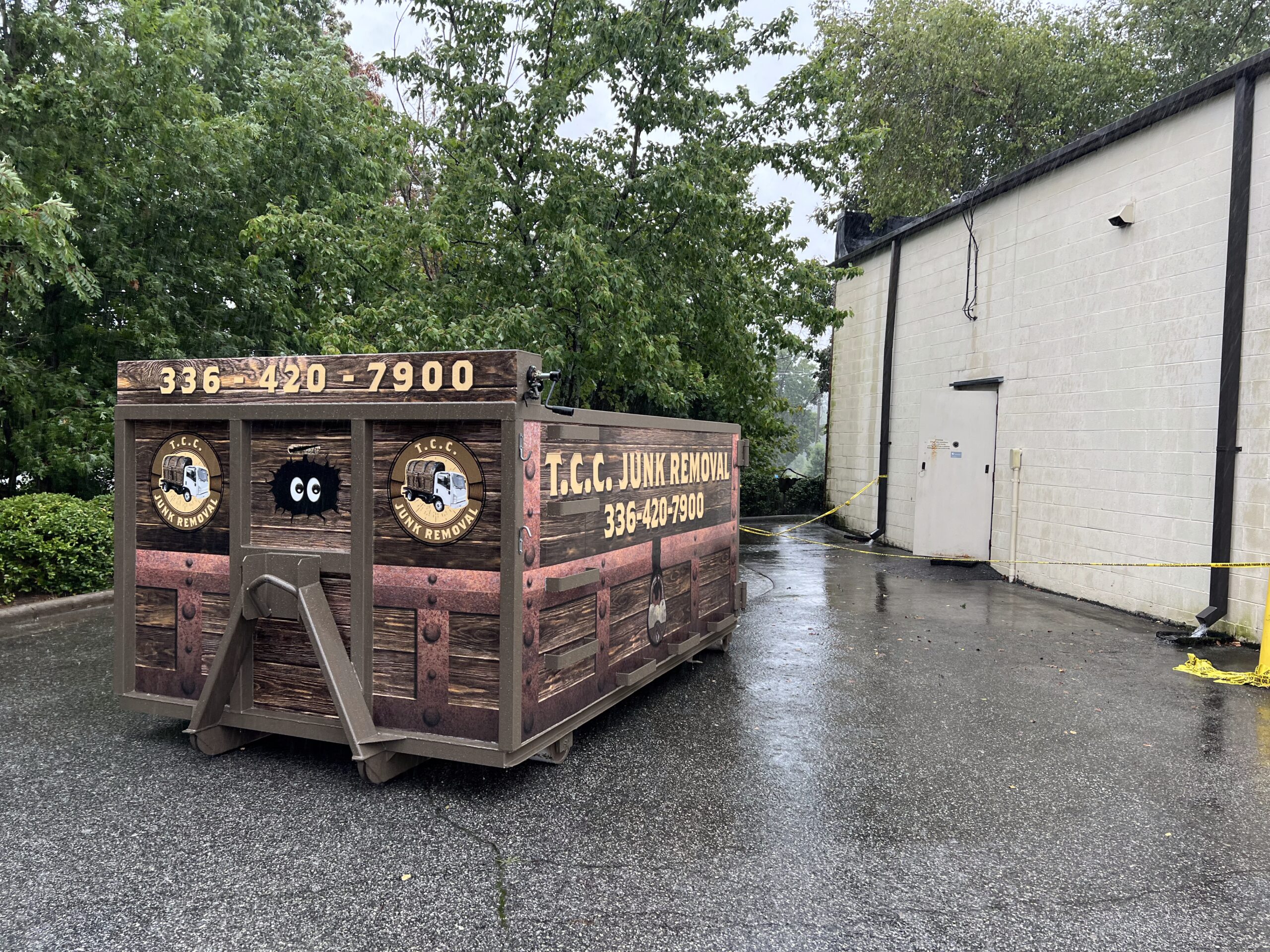When a demolition project concludes at your commercial building, the real work has just begun. Property managers face a complex maze of debris removal, hazardous materials handling, and regulatory compliance that can make or break their timeline and budget. Demolition projects vary widely in type, scale, and complexity, requiring careful planning and attention to detail. Understanding the intricacies of post-demolition cleanup isn’t just about clearing rubble—it’s about transforming a construction zone back into a profitable, safe property. Thorough cleanup is also essential for preparing the site for future construction or development.
The aftermath of any demolition process presents unique challenges that require specialized knowledge and equipment. From navigating waste materials regulations and managing waste management responsibilities to ensuring proper disposal of hazardous materials, property managers must coordinate multiple moving parts while maintaining strict safety measures. The stakes are high: improper cleanup can lead to regulatory fines, extended vacancy periods, and potential liability issues.
This comprehensive guide will walk you through everything you need to know about post-demolition cleanup services, helping you make informed decisions that protect your investment and accelerate your property’s return to market.
Understanding Post-Demolition Cleanup
Post-demolition cleanup encompasses far more than simply hauling away debris. This specialized service involves systematically removing all waste materials, including demolition debris, as a specific type of waste generated during the process. From concrete chunks and metal fragments to dust particles, potentially hazardous substances, and recyclable materials, it is important to separate recyclable materials for proper handling and environmental compliance. The demolition cleanup process requires careful planning, proper equipment, and adherence to strict safety protocols.
Commercial properties present unique challenges compared to residential cleanup projects. Commercial space, such as office buildings or retail centers, often requires specialized cleaning approaches. The scale is typically larger, the materials more diverse, and the regulatory requirements more stringent. Key regulations include building codes, zoning laws, and environmental laws, all of which must be followed to ensure compliance. A commercial building might contain everything from office furniture and electronic equipment to specialized industrial materials, each requiring different disposal methods. Addressing these complexities requires detailed planning and a detailed plan to ensure all aspects of the project are managed effectively.
The cleanup process must also account for the building’s future use. Selective demolition and interior demolition may be used depending on whether the goal is renovation, remodeling, or partial reuse, allowing for precise removal of specific components. Whether you’re preparing for renovation, new construction, or sale, the level of cleanup required will vary significantly. Understanding these distinctions helps property managers set realistic expectations and budgets for their demolition project, including consideration of labor costs and potential cost savings through efficient planning. Additionally, it is essential to obtain proper permits and comply with federal regulations to avoid legal issues and project delays.
Key Steps in Post-Demolition Cleanup
Site Assessment and Planning
Every successful demolition cleanup begins with a thorough site assessment. This critical first step involves cataloging all waste materials present, identifying potential hazards, and developing a comprehensive removal strategy, which includes creating detailed demolition plans as a crucial step. Professional cleanup crews will evaluate the site for structural debris, personal property, any materials requiring special handling, and assess the impact on nearby structures.
During the planning phase, crews also assess access routes, determine equipment needs, and establish timelines. This preliminary work ensures the cleanup process proceeds efficiently while minimizing disruptions to surrounding properties or ongoing operations. Adhering to safety regulations during planning is essential to prevent accidents and ensure legal compliance.
The assessment phase also involves obtaining necessary permits and ensuring compliance with local regulations, with property owners often actively involved in the planning and permitting process. Many jurisdictions require specific demolition permits or waste disposal documentation, particularly when hazardous materials are involved.
Waste Removal and Disposal
The physical removal of debris represents the most visible aspect of demolition cleanup. This process involves sorting materials into categories: recyclables, standard waste, items requiring special disposal procedures, and recyclable materials. Professional crews prioritize recycling and recycling materials to minimize environmental impact. Professional crews use heavy-duty equipment and heavy machinery to safely remove large structural elements while carefully handling smaller debris to prevent environmental contamination. Proper training is essential for operating heavy machinery and equipment, as improper handling can lead to safety risks and actions that could pose safety risks on-site.
Efficient waste removal requires strategic planning to minimize trips and maximize load capacity. Effective waste management can lead to cost savings and lower labor costs by streamlining processes and reducing unnecessary expenses. Experienced cleanup teams coordinate with disposal facilities to ensure materials reach appropriate destinations, whether that’s recycling centers, specialized treatment facilities, or approved landfills.
Hazardous Material Handling
Commercial buildings often contain materials that require specialized handling, including asbestos, lead paint, or chemical residues from previous operations. These hazardous materials demand strict adherence to safety protocols and regulatory requirements, including compliance with safety regulations, federal regulations, environmental laws, and building codes.
Professional cleanup crews must use personal protective equipment and follow established procedures for containing and removing these substances. Having a detailed plan for hazardous material handling is essential to ensure all safety and regulatory requirements are met. Improper handling can result in serious health risks and significant legal liability for property managers.
The disposal of hazardous materials also requires specific transportation and facility arrangements. Only licensed contractors should handle these materials, and obtaining proper permits for hazardous material disposal is necessary. All disposal must be properly documented for regulatory compliance.
Final Cleaning and Inspection
The cleanup process concludes with detailed cleaning and inspection of the entire site. This involves removing dust and debris particles, cleaning surfaces, and ensuring the space meets health and safety standards for its intended future use, as well as preparing the site for future construction.
For property managers seeking an effective and convenient approach, hiring professional cleanup services is a practical solution.

How TCC Junk Removal Can Help
TCC Junk Removal specializes in comprehensive post-construction cleaning services for commercial properties throughout the Greensboro area. Their experienced team understands the unique challenges property managers face and provides tailored solutions for each demolition project.
The company offers same-day and next-day service options, helping property managers maintain tight project timelines. Their comprehensive approach includes everything from initial site assessment through final cleanup and documentation, providing a single point of contact for the entire process.
TCC’s commitment to eco-friendly disposal methods means we recycle, donate, or repurpose materials whenever possible, and we prioritize recycling and recycling materials to achieve cost savings for clients. This approach not only reduces environmental impact but can also help property managers meet sustainability goals and potentially reduce disposal costs. Our expertise in waste management ensures proper handling and separation of recyclable materials throughout the cleanup process.
Our services are specifically designed for various commercial scenarios, including commercial space cleanup, from office building renovations to retail space conversions. This experience allows us to anticipate potential challenges and provide efficient solutions tailored to each property’s specific needs.
Benefits of Professional Cleanup Services
Increased Efficiency and Time-Saving
Professional cleanup services dramatically reduce the time required to prepare a property for its next phase. Experienced crews work systematically and have access to specialized equipment that allows them to complete tasks much faster, including the use of heavy machinery, which requires proper training for safe and efficient operation. By working systematically, these professionals achieve cost savings and help reduce labor costs compared to less experienced teams.
The efficiency gains extend beyond speed. Professional services coordinate all aspects of the cleanup process, from waste sorting and removal to final site preparation, eliminating the need for property managers to coordinate multiple contractors or services. This approach also ensures minimal disruption to ongoing operations.
Compliance with Regulations and Safety Standards
Navigating the complex web of regulations governing demolition cleanup requires specialized knowledge. Professional cleanup services stay current with changing requirements and ensure all work meets applicable standards, including compliance with safety regulations, federal regulations, building codes, zoning laws, and environmental laws.
This compliance extends to proper waste disposal, hazardous material handling, and documentation requirements, as well as obtaining proper permits and engaging in detailed planning to ensure full regulatory compliance.
Reduced Liability and Risks
Attempting to handle demolition cleanup without proper expertise exposes property managers to significant liability. Professional services assume responsibility for proper cleanup procedures, reducing the risk of regulatory violations or safety incidents, and helping to avoid safety risks, safety hazards, and actions that could pose safety risks to neighboring properties and the surrounding community.
Professional crews also carry appropriate insurance coverage, providing additional protection against potential claims or damages, which offers peace of mind to property owners. This risk transfer can be particularly valuable for complex cleanup projects involving hazardous materials.
Improved Property Value and Appeal
Thorough professional cleanup enhances a property’s marketability and can accelerate leasing or sale timelines. Properties that are properly cleaned and prepared make better impressions on potential tenants or buyers, and are optimally positioned for future construction or future projects.
The comprehensive nature of professional cleanup also ensures no hidden issues remain that could complicate future development or occupancy. This thoroughness can prevent costly surprises during subsequent construction or renovation phases—a detailed plan at this stage helps avoid costly delays and ensures a smooth transition to the next steps.
Transforming Challenges into Opportunities
Post-demolition cleanup represents a critical transition point in any commercial property’s lifecycle. While the complexity of this process can seem overwhelming, partnering with experienced professionals transforms potential headaches into streamlined solutions. For property managers, hiring professionals is a practical solution that ensures efficient and thorough results.
The investment in professional cleanup services pays dividends through reduced project timelines, enhanced safety, improved property marketability, and cost savings achieved through long-term partnerships and efficient processes. More importantly, it allows property managers to focus on their core responsibilities while ensuring this crucial phase receives the specialized attention it deserves. Lessons learned from current projects can also be applied to future projects, leading to ongoing improvement and better outcomes.
Ready to simplify your next demolition cleanup project? Contact TCC Junk Removal for a free quote and discover how our comprehensive services can help you navigate the post-demolition process efficiently and safely. Our team of experts is ready to provide the specialized support your commercial property needs. Call us at (336) 916–9169.



